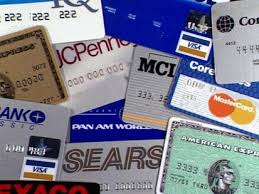America’s credit bureaus are about to get some new scrutiny. The Consumer Financial Protection Bureau adopted a rule on Monday that will allow it to keep an eye on the nation’s credit reporting industry.
Starting September 30th, the agency will monitor the country’s big credit bureaus and conduct on-site examinations to see if these companies are complying with the law. It’s similar to what the CFPB already does with the nation’s big banks.
This is the first time the federal government will take an active role in trying to clean up an industry that has a reputation for sloppiness and arrogance, consumer advocates say. Until now, no single federal government agency could access all the information necessary to generate a complete picture of what’s happening inside these companies. The CFPB will enforce the laws already on the books and write new rules as needed.
“Supervising this market will help ensure that it works properly for consumers, lenders, and the wider economy,” CFPB director Richard Cordray says in a prepared statement. “There is much at stake in making sure it is both fair and effective.”
Consumer groups, which have urged better federal oversight for years, are extremely pleased with today’s announcement.
“It’s important because credit report mistakes are all too common,” says Pamela Banks at Consumers Union, the advocacy arm of Consumer Reports. “We hear from people that when they find a mistake on their credit report, they contact the credit bureau and the bureau does little to investigate, or refuses to remove the mistake – even after the consumer has made a case that the information is wrong or inaccurate.”
Credit bureaus are required by federal law (the Fair Credit Reporting Act) to remove or correct inaccurate, incomplete or unverifiable information, generally within 30 days of being notified about the problem.
How errors can hurt you
Credit bureaus collect information on your transactions. They know if you pay on time, late or not at all. They know how much credit you have from various lenders, the balances on your credit cards and if you’ve paid off your mortgage. They also collect information from public records about court judgments, liens and bankruptcies.
Almost every adult in this country has a credit file. Each of the three largest credit reporting companies (Equifax, Experian and TransUnion) maintain files on more than 200 million Americans. The amount of information collected and distributed is mind-boggling. According to the CFPB, the industry sells more than 3 billion reports a year to lenders, utilities, landlords, insurance companies and prospective employers.
A bad credit history can be devastating. You could be denied a car loan or mortgage, pay more for insurance, have higher interest rates on your credit cards, be unable to rent an apartment or even lose a job. And those negative consequences are the same whether the report is accurate or based on erroneous information.
John Ulzheimer, president of Consumer Education at SmartCredit.com, worked at one of the big three credit reporting agencies. He supports any effort that encourages the industry to do a better job of maintaining accurate records.
“People are sick and tired of having inaccurate credit information that impedes their ability to get jobs, get competitive financing or get competitive premiums on insurance policies,” he says. “Quite frankly, they’re fed up.”
How many mistakes?
No one knows for sure how many mistakes the credit reporting agencies makes. Estimates are all over the map. The most recent information comes from The Columbus Dispatch which reported the results of a yearlong investigation in May.
For its series, Credit Scars, the paper collected and analyzed tens of thousands of consumer complaints filed against Equifax, Experian and TransUnion. The findings are eye-opening:
Nearly a quarter of the complaints filed with the Federal Trade Commission involved mistakes about credit cards, mortgages and car loans.
More than 5 percent of the complaints dealt with basic personal information – such as birth dates, addresses or Social Security numbers – listed incorrectly.
More than 5 percent of those who complained to the FTC said their reports listed an account that was not theirs.
And nearly 200 people said their credit reports listed them as dead, which made it impossible for them to get credit.The Dispatch reports that Stuart Pratt, president of the Consumer Data Industry Association, questioned the validity of the results. He told the paper that about a fifth of the complaints are filed by people who are trying to have negative but accurate information removed from their file.
“The consumer reporting industry looks forward to working with the CFPB in its regulatory oversight activities,” the CDIA said in an emailed statement to NBCNews.com. “As for consumer complaints regarding their credit reports, the most comprehensive study ever done on the issue last year found that only one-half of one percent of credit reports had a credit score change that improved the individual’s credit rating after filing a consumer dispute. Even more to the point, 95 percent of consumers were satisfied with the consumer dispute process,” the statement added.
The Consumer Financial Protection Bureau has been looking at this issue and plans to publish its findings this fall.
My two cents
This new federal oversight is long overdue and much welcomed. The industry may say it’s doing a good job, but by all indications it is not. Even one mistake can be devastating if it’s your credit at risk.
The trade group for the credit reporting industry says mistakes happen less than 1 percent of the time. Even if that figure is correct – and I find that had to believe – a 1 percent error rate means about 2 million files contain inaccurate information. That’s simply unacceptable.
We live in a world where an error in a credit report can have serious negative consequences. We can’t opt-out of the system, so it must work properly. Hopefully, the Consumer Financial Protection Agency can make that happen. You shouldn’t be forced to take a credit bureau to court to get a mistake in your file corrected.
Finally, you need to do your part. Federal law gives you the right to get a free copy of your credit report every 12 months from each of the credit reporting agencies. Right now, about 96 percent of these reports are not claimed. That’s terrible. The only way to spot a mistake before it hurts you is to look for it. That’s your responsibility.
Get those free reports at AnnualCreditReport.com
By Herb Weisbaum, The ConsumerMan




